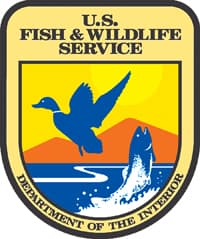Collaborative Science Projects to Benefit Fish, Wildlife and Communities of Upper Midwest and Great Lakes
OutdoorHub 05.29.14

Fish, wildlife and communities of the upper Midwest and Great Lakes will benefit from leading edge science projects that aim to inform on-the-ground conservation efforts and natural resource management across the upper Midwest and Great Lakes region.
The Upper Midwest and Great Lakes Landscape Conservation Cooperative (LCC), a partnership of more than 30 agencies and organizations vested in long-term sustainability of our natural resources and regional communities, announced funding for new and ongoing research projects that aim to connect science with land and water resource managers and policymakers.
“Our partnership is founded on a collaborative approach to problem-solving. Working together across federal, state and non-governmental lines, we are identifying, and filling, key gaps in our collective body of scientific knowledge. By leveraging our resources, we are more equipped to respond to the natural resources challenges of today, and to build and improve upon the decision-support tools future generations will need tomorrow,” said Dave Scott, Assistant Regional Director for the U.S. Fish and Wildlife Service and LCC Steering Committee co-chair.
The upper Midwest and Great Lakes are home to a diverse range of fish, wildlife and plants supported by the Great Lakes, North America’s largest freshwater resource, coastal wetlands, major rivers, boreal forests and prairie-hardwood ecosystems. Many of these ecosystems surround heavily populated urban centers. Physical and social stressors like climate change, energy development, water demands, invasive species and the demands to support a growing human population are all threatening the ecological integrity of the region.
New research projects receiving 2014 LCC funding include:
Developing a Decision Support System for Prioritization and Restoration of Great Lakes Coastal Wetlands – Central Michigan University
By leveraging recently collected coastal wetland monitoring data, a basin-wide coastal wetland prioritization tool will be developed to help wetland managers across the Great Lakes basin prioritize, protect and restore coastal wetlands.
Climate Change Impacts on Wisconsin’s Natural Communities and Conservation Opportunities Areas: Updating Wisconsin’s Wildlife Action Plan – Wisconsin Department of Natural Resources
State Wildlife Action Plans are important conservation planning tools for state natural resource agencies. Natural resource experts will develop detailed climate change vulnerability assessments for natural communities in Wisconsin, and work to integrate valuable information on climate change impacts and natural communities into the State Wildlife Action Plan.
Quantifying and Mitigating the Impacts of Emerald Ash Borer on Black Ash Forests in the Upper Great Lakes Region – University of Minnesota
The emerald ash borer poses a tremendous threat to ash forest across the upper Great Lakes. This project will increase understanding of the potential regional impacts of emerald ash borer on black ash forest and associated wildlife by leveraging funding and existing research experiments and field trials located across Michigan, Minnesota and Wisconsin.
Implementing a Conservation Design with Many Landowners in the Chicago Wilderness Region – Audubon Society
An expansive network of citizen scientists, volunteer land stewards, public land management agencies and non-governmental organizations have pioneered sustainable grassland restoration and management work in the Chicago area, benefiting grassland bird communities on both public and private land. Statistical models of grassland bird distributions and grassland cover will be developed and integrated with Chicago Wilderness’ Green Infrastructure Vision to provide a more holistic and integrated approach to conservation planning and achieving natural resource objectives.
Collaborative Restoration of Aquatic Resources in the South Central Lake Superior Basin -Keweenaw Bay Indian Community
A collaborative geo-database of inventoried connectivity barriers within the South Central Superior Basin will be used to prioritize restoration for approximately 1,800 inventoried stream crossings. This pilot landscape conservation design project will contribute to the LCCs ongoing aquatic connectivity initiative by prioritizing restoration projects within regionalized watersheds. A suite of current remote sensing tools, including light detection and ranging technologies, will be used to target restoration and management needs to meet multiple natural resource objectives.
Ongoing projects receiving 2014 LCC funding include:
- Developing Fish Trophic Interaction Indicators of Climate Change for the Great Lakes – U.S. Geological Survey – Great Lakes Science Center
- Regional Risk Assessment for Climate Vulnerable Terrestrial Species – Wisconsin Department of Natural Resources and University of Wisconsin
- Optimizing Connectivity in the Great Lakes Basin to Restore Native Fish Migrations While Controlling Invasive Species – University of Wisconsin – Center for Limnology
- Assessment of Waterfowl Habitat Restoration as an Adaptive Mechanism for Water Sustainability in the Grand Kankakee River Watershed – University of Notre Dame
- Integrated Models for Estimating Influences of Climate Change on Waterfowl Populations, Waterfowl Habitat, and Hunter Opportunity and Demographics – Ducks Unlimited
For complete information on all new and ongoing research projects supported by the Upper Midwest and Great Lakes LCC, visit http://greatlakeslcc.org/research-projects/
The grants totaling $755,000 were funded in part by the President’s Great Lakes Restoration Initiative; an interagency effort led by the U.S. Environmental Protection Agency. For more information on U.S. Fish and Wildlife Service activities related specifically to the Great Lakes Restoration Initiative, please visit http://www.fws.gov/GLRI

